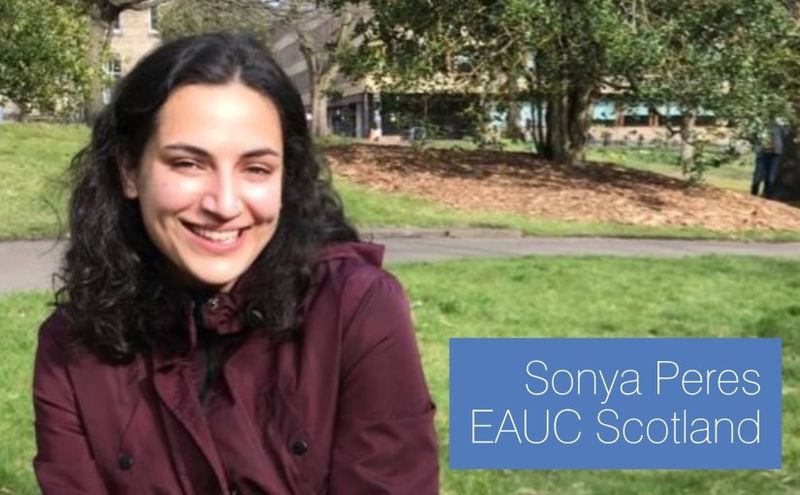How I will travel better: my journey with flying
In the past few years, I have flown often between Canada, the United Kingdom and countries in Asia for both personal and academic purposes. Sometimes, I feel like my life has been held together by air travel and my identity defined by the thoughts I’ve had while spending countless hours in terminals 1, 2 and 3.
My family and I emigrated from India to the UAE, and then Canada. I have since moved to Scotland. I am fortunate to have studied for an undergraduate and postgraduate degree, both at international universities. Consequently, my family and loved ones are scattered all over the world and I am, at any given point, missing someone thousands of miles away.
I became interested in climate change halfway through my undergraduate degree, abruptly changing academic paths to better understand its consequences for marginalised communities. I quickly learned about the impact of corporations, governments and my every day actions on the environment, developing an interest in sustainable food and agriculture and becoming a public transport fanatic. Yet, I never put too much thought into air travel.
It wasn’t until I started an internship at EAUC-Scotland that I began to truly understand the environmental impact of air travel. The first two months of my internship were spent researching the impacts of flights and developing the Travel Better Package to support reductions in air travel in universities and colleges.
I mulled over ideas about how air travel contributes to at least 2.5% of global emissions and is projected to triple by 2050, potentially accounting for a quarter of the world’s carbon budget [1]. How a small proportion of the world’s population is responsible for emissions from air travel despite that same group likely not shouldering the burden of the climate crisis[2]. And, how extensive and instant physical mobility is an immense privilege rather than a right [3].
But then the holiday season approached. As I learned more about air travel, I became increasingly conflicted about whether or not to fly home to Canada to spend the holidays with my parents and one year old niece, mainly because I had travelled by air often in the past few years. I tried to avoid conversations about the holidays when engaging with other individuals working in sustainability- I feared letting down people I deeply respected. But, I also feared missing my niece’s first real Christmas and upsetting my parents. Regrettably, the knowledge of, and desire to reduce air travel had only recently come into my life and I hadn’t yet planned, or thought about how to deal with its emotional consequences.
And so, in October, a few weeks after beginning my journey in understanding air travel, I booked a roundtrip flight to Toronto.Since I was flying home, I knew I had to do two things: minimise the harm caused by my carbon intensive journey and plan ahead to avoid making unsustainable decisions again.
There are two ways to fly to Toronto from Edinburgh- both involve a layover. I decided to fly from London instead of Dublin as I knew I could easily take the train to London and back to Edinburgh, avoiding an unnecessary short haul flight. This decision provided added benefits, as I was able to visit a course mate in London, and my boyfriend’s family in Cardiff on the way back.
I grappled with whether or not to offset the carbon emitted from my journey, having extensively researched the social and environmental issues associated with many traditional offsetting schemes[4]. Instead, I decided to donate to the Grenfell Foundation to support community rebuilding and strengthening after the Grenfell Tragedy in 2017, as I believe it is important to strengthen communities (in many different ways) in the face of climate change.
We need to drastically reduce emissions. I plan for a no-fly future for myself while waiting for industry and governments to take the environmental impacts of air travel seriously. However, for now, it is not possible to eliminate flying entirely from my life; the best I can do is to travel better. I don’t think it is specifically bad that I flew home for Christmas, but rather, that I took multiple easily avoidable flights in the last couple of years and also flew home for Christmas. Now, following my work on the Travel Better Package, I will plan ahead to avoid unnecessary flights and to travel better. This will involve rethinking holiday destinations, communicating clearly with friends and family about my low-carbon goals, properly justifying important flights and encouraging others to do the same and having the courage to be a bit uncomfortable at times.
Avoiding one transatlantic flight is the 3rd most impactful individual action we can take to reduce carbon emissions, after living car-free and having one fewer child. Other impactful actions include a meat-free diet. While it is important not to underestimate the impact of reducing air travel compared to other behaviours, I will maximise my carbon reductions by doing everything I possibly can.[5]
This blog isn’t meant to be an exercise in honesty, but rather to highlight my journey in understanding air travel in case it is helpful to anyone also grappling with the enormity of climate change and our roles in structures that propel it. I am still figuring out how to personally confront climate change and I want to play a supportive role in helping others do the same.
The Travel Better package will be launched on 12 March. For more information, please contact Sonya at [email protected].
This blog was written in March 2020.
Further Information
[1] https://www.nytimes.com/2019/09/19/climate/air-travel-emissions.html
[2] https://files.1010global.org/documents/Aviation_briefing_Jan2019_FINAL.pdf
[3] https://www.tandfonline.com/doi/full/10.1080/00330124.2013.784954
[4] https://www.responsibletravel.com/copy/carbon-offsets
[5] https://iopscience.iop.org/article/10.1088/1748-9326/aa7541
https://www.theguardian.com/environment/ng-interactive/2019/jul/19/carbon-calculator-how-taking-one-flight-emits-as-much-as-many-people-do-in-a-year












